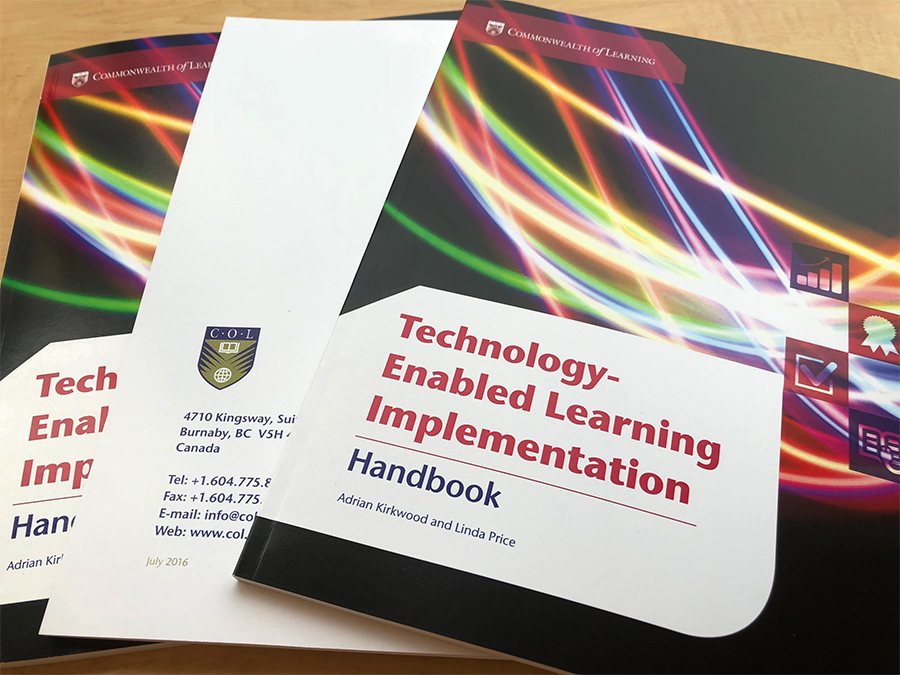
Recognising the transformative power of technology to improve access and increase the quality of learning, COL focuses on Policy-Technology-Capacity as a triangle to implement technology-enabled learning. The Technology-Enabled Learning (TEL) initiative considers the appropriate use of any form of technology for teaching and learning, including open educational resources (OER), online learning, mobile devices, and massive open online courses (MOOCs), as well as low-cost technologies such as audio and video, radio and TV. The TEL initiative promotes skills development and innovation in the areas of information and communications technology (ICT) to help Commonwealth governments improve the livelihoods of their citizens. Through this initiative, COL works with educational institutions to implement TEL in order to improve:
- Use of ICT by more learners;
- Use of ICT by more teachers;
- Number of courses using ICT for teaching and learning;
- Student learning through use of ICT; and
- Sharing of teaching and learning materials developed in the institution.
While the overall approach taken is scholarly in nature, the specific activities in this project include a baseline study of the institution via a survey of ICT use by teachers and students; a Policy Review and Infrastructure Audit (PRIA) of the institution; the development of a draft report and a draft policy for TEL; consultation with institutional stakeholders through a visioning workshop; approval of the policy by the appropriate statutory bodies of the institution; capacity-building for the implementation of TEL; the development of an implementation plan for two to three years; and monitoring and evaluation.
Considering the capacity and resources available at COL in a particular financial year, institutions are selected based on requests received from countries and governments, with consideration given to regional balance. Since 2015, COL has assisted the following institutions to integrate ICT in teaching and learning.
- Ahsanullah University of Science & Technology, Bangladesh
- Bangladesh Open University
- Fiji National University
- Jaramogi Oginga Odinga University of Science and Technology, Kenya
- National University of Samoa
- Open University of Tanzania
- Rajiv Gandhi University of Knowledge Technologies, India
- SNDT Women’s University, India
- Uganda Management Institute
- Universiti Malaysia Sabah
- University of Papua New Guinea
- University of South Pacific, Fiji
Over 24,000 learners have benefited from MOOCs organised in partnership with Athabasca University, Canada.
Available at: Implementation Handbook


